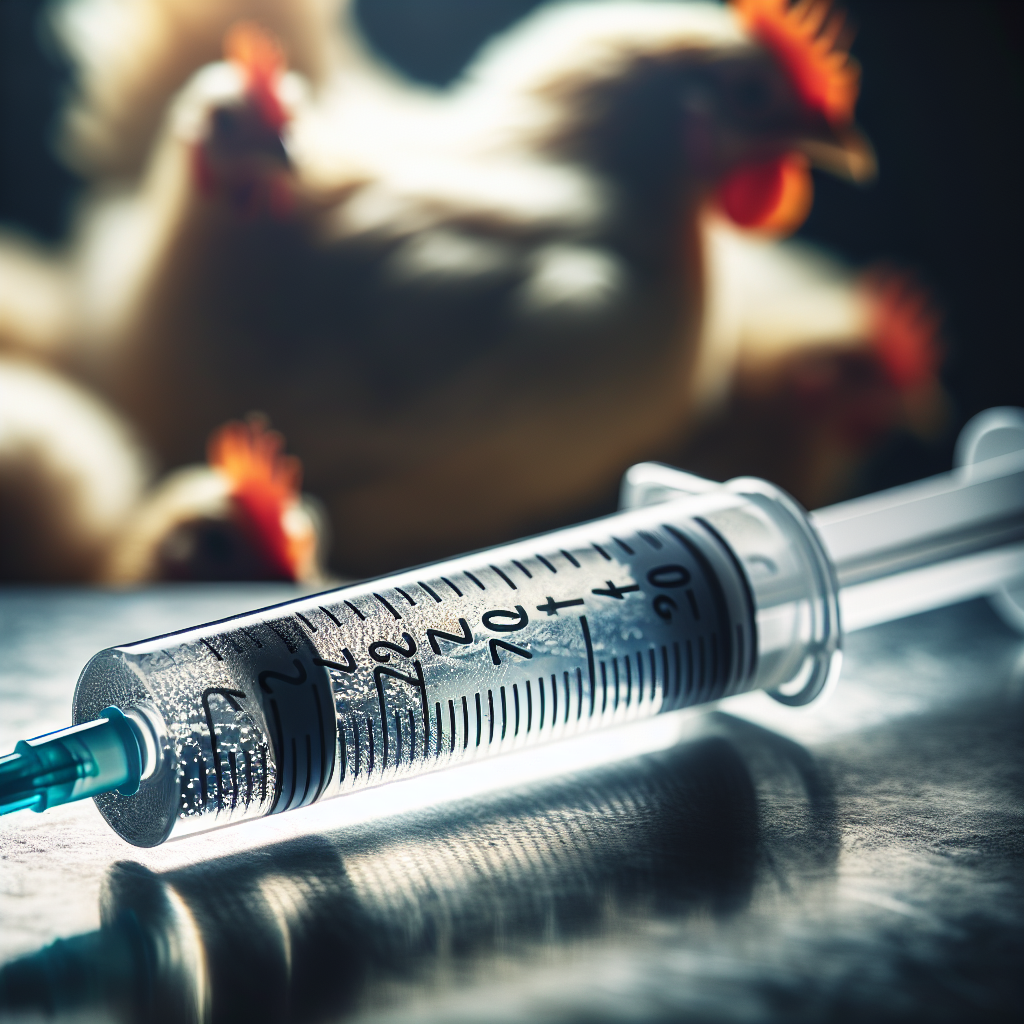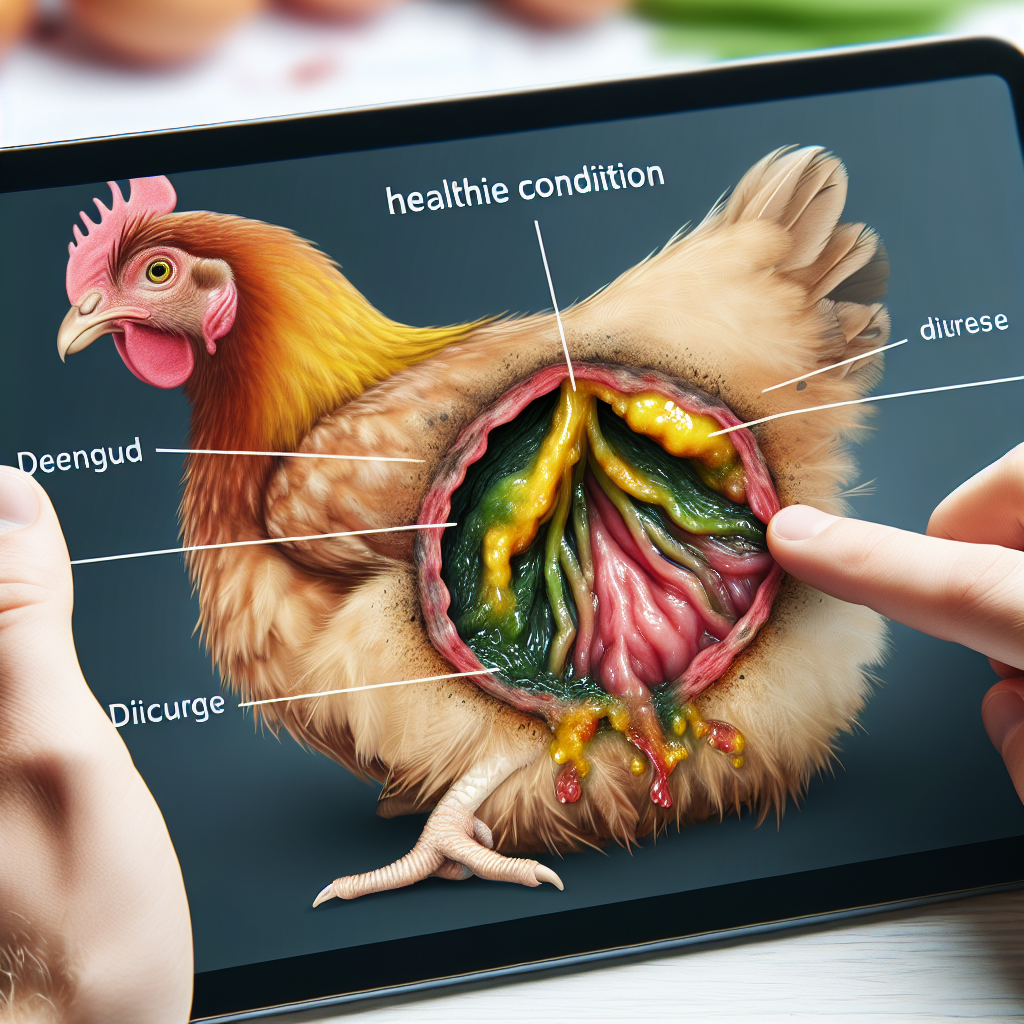If you find yourself in a situation where you have sick chickens, it is important to know how to properly administer medications to them. Whether you are a seasoned chicken owner or new to this feathered endeavor, understanding the considerations for giving medications to your ailing birds can make all the difference in their recovery. From determining the appropriate dosage to ensuring they receive the medication in a stress-free manner, this article will provide you with the essential guidelines to effectively care for your sick chickens.
Proper Diagnosis
Identify the Symptoms
When your chicken is showing signs of illness, it is crucial to accurately identify the symptoms. Some common symptoms to watch out for include lethargy, loss of appetite, abnormal feces or droppings, respiratory issues, swollen joints, abnormal behavior, and changes in physical appearance. By carefully observing your chicken and documenting any unusual signs or behaviors, you can provide valuable information to your veterinarian for proper diagnosis and treatment.
Consult a Veterinarian
Once you have identified the symptoms, it is essential to consult a veterinarian who specializes in avian health. A professional veterinarian will have the expertise to diagnose the underlying cause of your chicken’s illness and recommend the appropriate medications for treatment. Avoid self-diagnosing or administering medications without proper guidance, as it can potentially worsen the condition or lead to incorrect treatment.
Types of Medications
Antibiotics
Antibiotics are commonly prescribed for bacterial infections in chickens. They work by inhibiting the growth and spread of bacteria, helping the bird’s immune system to fight off the infection effectively. It is important to note that not all antibiotics are safe for chickens, and the specific type and dosage should be determined by a veterinarian. It is crucial to follow the prescribed dosage and treatment duration to ensure the antibiotics are effective and prevent antibiotic resistance.
Antivirals
Antiviral medications are used to treat viral infections in chickens. While antibiotics are ineffective against viruses, antivirals can help reduce the severity and duration of the illness. These medications work by interfering with the replication of the virus within the chicken’s body. As with antibiotics, only use antivirals under the guidance of a veterinarian to ensure the proper dosage and treatment protocol.
Antifungals
Fungal infections such as candidiasis or aspergillosis can affect chickens, leading to respiratory issues, digestive problems, and even death if left untreated. Antifungal medications are designed to target and eliminate fungal infections. It is crucial to administer antifungals as prescribed by a veterinarian to ensure proper dosage and treatment duration.
Analgesics
In the case of pain or discomfort resulting from an injury or illness, analgesics can be used to relieve pain in chickens. These medications provide relief by reducing pain signals in the body, allowing the bird to rest and recover more comfortably. However, it is important to consult a veterinarian for proper pain management and recommended analgesics, as dosages and types can vary depending on the chicken’s condition.
Dosage Calculation
Consider Weight and Size
When administering medications to sick chickens, it is essential to consider their weight and size for accurate dosage calculation. Chickens come in various breeds and sizes, so a one-size-fits-all approach is not appropriate. Determining the correct dosage based on weight ensures that the medication is effective and avoids over or under-dosing, which could lead to ineffective treatment or potential harm.
Consult Veterinarian for Recommended Dosage
To determine the appropriate dosage for your chicken’s medication, it is crucial to consult a veterinarian. They will consider the specific medication, the chicken’s weight, and the severity of the illness to provide the correct dosage. Veterinarians have the expertise to calculate safe and effective dosages, taking into account the chicken’s breed and individual health factors. It is important to follow the veterinarian’s recommended dosage and any adjustments they may make throughout the treatment period.
Administration Methods
Oral Medication
Oral administration is a common method for giving medications to chickens. It involves directly administering the medication into the chicken’s mouth using a syringe or dropper. This method allows for accurate dosage control and is relatively easy to perform. However, it requires gentle handling to avoid causing stress or injury to the chicken. It is essential to follow the veterinarian’s instructions for proper administration techniques.
Injectable Medication
Injectable medications are administered via a needle and syringe directly into the chicken’s muscles or veins. This method often requires the assistance of a veterinarian or trained professional due to the precise technique and knowledge of injection sites. Injectable medications can be effective for delivering medication quickly and directly to the bloodstream, but proper sterilization techniques and knowledge of injection safety are crucial to prevent infection and damage to the chicken.
Topical Medication
Topical medications are applied directly to the chicken’s skin or feathers. They come in the form of creams, ointments, or sprays and are useful for treating external infections, wounds, or skin issues. Topical medications should be applied carefully, following the veterinarian’s instructions, to ensure proper coverage and absorption. It is important to prevent the chicken from ingesting or rubbing off the medication as they groom themselves.
Safety Precautions
Wear Protective Equipment
When handling and administering medications to sick chickens, it is essential to prioritize safety by wearing protective equipment. Gloves, masks, and goggles can help protect against potential contamination and minimize the risk of transmitting zoonotic diseases. This is particularly important when dealing with infectious diseases or when using potentially harmful medications. By wearing appropriate protective gear, you safeguard your health and the well-being of your flock.
Avoid Contamination
Contamination can compromise the effectiveness of medications and pose a risk to both your chicken and yourself. To avoid contamination, it is crucial to handle medications with clean hands and disinfect any equipment used for administration. Separate medication containers and measuring tools should be used for each chicken to prevent cross-contamination. Additionally, proper storage and disposal of medications are essential to maintain their efficacy and avoid accidental ingestion by humans or other animals.
Proper Storage of Medication
To ensure the potency and effectiveness of medications, it is imperative to store them properly. Follow the instructions provided by the veterinarian or the medication label for specific storage requirements. Most medications should be stored in a cool, dry place, away from direct sunlight and out of reach of children and animals. Avoid storing medications in extreme temperatures, such as freezing or excessive heat, as it can alter their chemical composition and render them ineffective.
Treatment Duration
Follow Veterinarian’s Instructions
The duration of treatment will depend on the specific illness and the medication prescribed. It is crucial to carefully follow the veterinarian’s instructions regarding the treatment duration to ensure a successful recovery for your chicken. If you notice any improvement or worsening of symptoms during the treatment period, promptly communicate with your veterinarian for guidance and possible adjustments to the treatment plan.
Complete Full Course of Medication
Completing the full course of medication is essential to eradicate the infection or treat the underlying illness completely. Even if your chicken seems to be recovering, stopping the medication prematurely can allow the remaining pathogens to develop resistance and lead to a relapse. Always administer the full prescribed course of medication, even if the symptoms have resolved, to ensure a complete recovery and minimize the risk of future health issues.
Potential Side Effects
Monitor for Adverse Reactions
Like any medication, there is a potential for side effects when administering medications to chickens. Some common side effects may include gastrointestinal upset, allergic reactions, or changes in behavior. It is recommended to closely monitor your chicken for any adverse reactions during the treatment period. If you notice any unusual or concerning symptoms, contact your veterinarian immediately for guidance and possible adjustments to the medication or treatment plan.
Report Any Issues to Veterinarian
If you observe any issues or concerns during the administration of medication, it is important to report them to your veterinarian. Keeping open communication with your veterinarian throughout the treatment process is crucial in ensuring the overall health and well-being of your chicken. They can provide guidance regarding potential side effects, dosage adjustments, or alternate medications if necessary.
Withdrawal Period
Follow Guidelines for Withholding Eggs or Meat
Certain medications may have withdrawal periods, during which eggs or meat from treated chickens should not be consumed. These periods ensure that the medication is fully eliminated from the chicken’s system before consumption, preventing potential harm to humans. It is essential to follow the guidelines provided by your veterinarian regarding the withdrawal period for each specific medication.
Ensure Medication is Fully Eliminated
To ensure the medication is fully eliminated from your chicken’s system, it is important to adhere to the prescribed withdrawal period. During this time, separate the treated chicken and any eggs or meat it produces from the rest of the flock to avoid accidental consumption. By following the withdrawal guidelines, you can ensure the safety of both your chickens and those who consume their products.
Preventive Measures
Vaccinations
Vaccinations play a vital role in preventing diseases in chickens. Consult with your veterinarian to determine the appropriate vaccination schedule for your flock. Vaccinations can help boost the chicken’s immune system against specific pathogens, reducing the likelihood and severity of illnesses. Properly administered vaccinations can minimize the need for medication usage in the future, providing long-term protection for your flock.
Biosecurity Practices
Implementing biosecurity practices can significantly reduce the risk of diseases spreading among your flock. This includes maintaining clean and sanitized living areas, controlling access to your property, and practicing strict hygiene when handling chickens or working in their environment. By minimizing exposure to pathogens, you can reduce the need for medications and promote overall flock health.
Healthy Diet
A healthy diet is essential for maintaining the overall health and immune system of your chickens. Provide a balanced diet that includes a variety of nutrients, vitamins, and minerals to support their well-being. Proper nutrition helps strengthen your chickens’ immune system, making them less susceptible to infections and reducing the need for medications. Consult with a veterinarian or poultry nutritionist for guidance on the most appropriate diet for your flock.
Monitoring Progress
Regularly Observe Chicken’s Behavior
Monitoring your chicken’s behavior is key to assessing the effectiveness of medications and tracking their recovery progress. Observe their eating habits, energy levels, and interaction with their flockmates. Document any changes or improvements seen during the treatment period. Regular observations allow you to communicate any concerns or progress to your veterinarian and make any necessary adjustments to the treatment plan.
Check for Improvement or Worsening
Besides behavior, assess the physical condition of your chicken regularly. Look for improvements in their overall appearance, weight, feather quality, and any healing of wounds or infections. If there are signs of worsening symptoms or no improvement, contact your veterinarian promptly. Timely evaluation and adjustment of the medication or treatment plan can ensure that your chicken receives the best care and support for recovery.
Administering medications to sick chickens requires careful consideration and adherence to proper protocols for effective treatment. By identifying symptoms, consulting a veterinarian, administering medications correctly, and following safety precautions, you can provide your sick chickens with the care they need for a swift and successful recovery. Remember to always consult a professional and follow their guidance to ensure the best outcome for your feathered friends.




